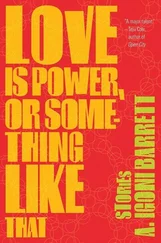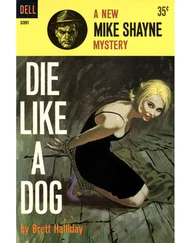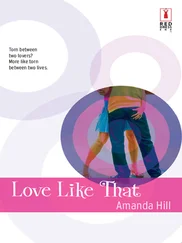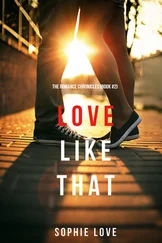JH: No ‘sneer’ but, yes, it’s true that I’m deeply uneasy with that word ‘community’ in this context. I know many black and gay people who are insulted by the notion that they are members of a specific ‘community’. It suggests that they have no individual opinions or experiences of their own and must all see themselves as victims. They’re not and they don’t.
JH: So you’d be happy for the BBC to have carried on as it was when you joined fifty years ago? I suspect the only black people you ever saw then were cleaners and all the bosses were straight white men. And institutional racism wasn’t challenged because it wasn’t even recognised.
JH: Of course I wouldn’t. God forbid! They were indeed bad days in so many ways. But the BBC was hardly unique in racially discriminating. It was reflecting the nation. As I describe later in this book, I was brought up in what would certainly be regarded now as a ‘racist’ household. My parents had not a single neighbour, let alone friend, who was black. Jews were regarded with profound suspicion. People of mixed race were ‘half castes’. I can’t recall there being a single black child in my school or even a black teacher. The idea of being served in the post office, let alone the bank, by a black man or woman was literally unimaginable. And as for a black woman or even a white woman reading the news on the wireless, let alone the telly … dream on!
JH: In which case why have you been attacking the BBC for trying to put right those terrible wrongs? Why have you been sceptical about its coverage of the Black Lives Matter movement or its attempts to meet the demands of black and ethnic minorities, let alone transgender people?
JH: I’m afraid you simply don’t understand what the BBC is for. It is legally and morally bound to be unbiased. What I attack in the book is the way the BBC has failed too often in its duty to be totally objective in its coverage of controversial issues such as immigration and the EU. It is not the BBC’s job to transform society in ways that will meet the approval of certain pressure groups.
JH: Not even if those pressure groups are on the side of the angels and want to change society for the better?
JH: Not even then. No. And let’s not forget that Black Lives Matter in this country is a political movement with objectives many people regard as profoundly disturbing – such as ‘defunding’ the police and closing the prisons.
JH: So you’d be happy if we still had laws, for instance, making it illegal for a man to sleep with another man? It was right to send Oscar Wilde to jail was it?
JH: Don’t be ridiculous. It was an obscenity. And do you know why that law changed?
JH: I’m sure you’re going to tell me.
JH: It was changed because the men and women we sent to Parliament voted for the change. And, yes, they came under pressure, but it was not pressure from the BBC. It was pressure from the victims of that iniquitous law and their supporters who marched in the streets and demanded reform and won the support of the majority of British citizens. It’s called the democratic process. And the BBC reported that great campaign because that was its duty. And is still its duty.
JH: You can bang on about impartiality as much as you like but the fact is that Lord Reith himself, the man who created the BBC, said it was not impartial as between good and evil, and racism is evil.
JH: Tell me about it. I lived for years in South Africa. I saw the evil of apartheid at first hand and I reported what I saw. That’s what journalists do. And when the authorities tried to get the BBC to pull me out because I was ‘hostile’ to the apartheid regime, my boss told their ambassador in London to sling his hook. He was concerned only that I reported the facts.
JH: And one fact is that there is still racism in this country and the BBC has an obligation to report it.
JH: True, but there are now laws that make racism illegal and when those laws are broken the BBC does indeed report it. The same applies to sexuality. It’s illegal to discriminate against gays or lesbians or transgender people and the BBC’s reporting must reflect that.
JH: In which case why did you attack the BBC for appointing an LGBT correspondent?
JH: I didn’t. I attacked it for giving him a platform on which he said he regarded himself as a ‘mouthpiece’ for LGBT people. That’s simply outrageous. Journalists aren’t ‘mouthpieces’ for anyone.
JH: Even if their cause is just?
JH: Look … PR people are mouthpieces. They say what their clients want them to say. That’s what they get paid for. Journalists must question everyone and everything. They must accept almost nothing on trust.
JH: One single example of some loose language is hardly evidence of the BBC allowing its reporters and correspondents to set their own agenda.
JH: You want another? Since I wrote the book the BBC has also appointed a ‘gender and identity’ correspondent. She became involved in a massive row when she questioned the decision of a television news reporter to use the N-word in a report about a serious racist attack on a young black man.
JH: Quite right too. Everyone knows that word is simply unacceptable in this day and age.
JH: Fair enough, but in this case the young man’s mother wanted the word to be used because it proved the attack really was racially motivated. The police changed the charge from ‘hit and run’ to ‘racially motivated attack’. And the reporter warned the audience she was going to use an offensive word. So did the presenters.
JH: But I bet the audience was massively offended.
JH: That’s what was so interesting. When the report was shown on Points West there were a handful of complaints. But by the time it was repeated the following morning on the BBC’s national news the Twitter mob and the lobby groups were on the case. They screamed blue murder. There were more than 18,000 ‘complaints’ and the BBC started to panic. A week later the director general Lord Hall called a meeting of the top bosses on a Sunday and the position he’d originally taken was reversed. The BBC apologised.
JH: And so he should have. You can’t go around offending thousands of people without saying sorry – even if you are the almighty BBC.
JH: Rubbish! Thousands of people are offended every day by stuff the BBC reports. There’d be something wrong if they were not. The founding principle of the great New York Times was that it would report ‘without fear or favour’ and that’s as true today as it was back in 1896.
JH: But only if what you’re reporting is important …
JH: … which is precisely what Lord Hall said this was. I quote: ‘This is important journalism which the BBC should be reporting on and we will continue to do so.’ But then he said something which flatly undermined that: ‘Yet despite these good intentions, I recognise that we have ended up creating distress among many people.’ And then he apologised. So in other words the BBC will continue to do ‘important journalism’ just so long as it doesn’t ‘cause distress’. That is simply not rational or logical. How do they deal with, say, some low-life scum who deface a Holocaust memorial? Reporting it will cause distress among vast numbers of people (not just Jews) so should it be ignored?
JH: Of course not. But the BBC must take into account people’s feelings.
JH: Really? Which people specifically? And who makes the ultimate decision?
JH: Well … BBC editors following the guidelines.
Читать дальше












